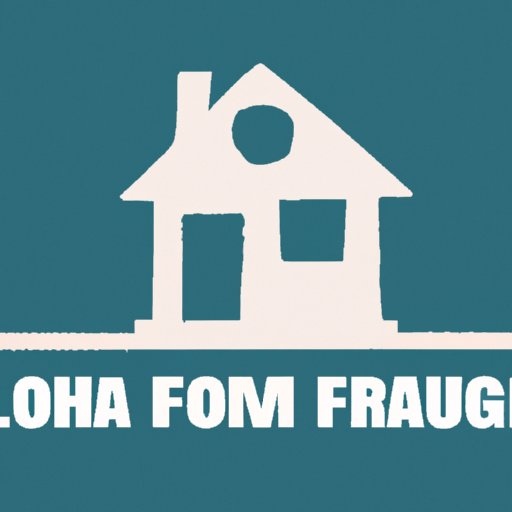
How to Get an FHA Loan: A Comprehensive Guide
For many first-time homebuyers or individuals with lower credit scores, an FHA loan can be an excellent option for purchasing a home. FHA loans are government-backed mortgages that offer more lenient qualifications and lower down payment requirements than conventional loans. If you’re considering an FHA loan, this step-by-step guide will walk you through the process of getting approved.
The Basics of FHA Loans: A Step-by-Step Guide to Getting Approved
The first step in getting an FHA loan is finding a lender that offers FHA loans. Many major banks offer FHA loans, but also consider working with a mortgage broker or reaching out to a local credit union. Once you’ve found a lender, you’ll need to complete an application and provide documentation that proves your income, employment, and creditworthiness. Documentation requirements may include:
- Two years of employment history
- Pay stubs from the past 30 days
- W-2 forms from the past two years
- Bank statements from the past two months
- A copy of your driver’s license or passport
- Your Social Security card
FHA loans come with specific terms and interest rates that are often lower than conventional loans. Currently, FHA interest rates range from 2.25% – 2.75% for 30-year fixed-rate mortgages.
How to Qualify for an FHA Loan: Requirements and Eligibility Criteria
To be eligible for an FHA loan, you must have a minimum credit score of 580. However, some lenders may require a higher credit score, particularly for larger loan amounts. Additionally, FHA loans may be easier to obtain for individuals with lower debt-to-income ratios. Generally, your monthly debt payments can not exceed 43% of your monthly income.
One of the most significant advantages of FHA loans is the ability to make a lower down payment. The FHA requires a minimum down payment of 3.5% of the home’s purchase price. This means first time homebuyers with limited savings can get a mortgage without a large down payment.
Top Tips for Boosting Your FHA Loan Application: What Lenders Look For
Lenders typically evaluate applicant’s employment history, credit score, and payment history. You can boost your chances of approval by providing proof of steady employment and income for the past two years and improving your credit score. Some tips for improving your credit score include:
- Pay down outstanding debts
- Clean up any errors in your credit report
- Avoid opening new lines of credit before your loan closes
Borrowers who can demonstrate financial stability, such as through saving for a larger down payment or having substantial financial reserves, are also appealing to lenders. In short, show your lender you are dedicated to your financial stability.
The Pros and Cons of FHA Loans: Is It Right for You?
FHA loans offer several advantages over conventional loans. FHA loans often require a lower credit score and down payment. These loans also offer more lenient requirements for income and employment history, making them an excellent choice for first-time homebuyers or buyers with a spotty credit history. However, FHA loans do come with their disadvantages. These loans come with a mortgage insurance premium (MIP), which is a monthly premium that borrowers must pay.
Deciding whether an FHA loan is right for you depends on your individual circumstances. If you have a low credit score, limited savings, or have struggled to get approved for a conventional loan in the past, an FHA loan could be an excellent option. However, if you have a strong credit score or a larger down payment, you may be better off with a conventional loan.
Mistakes to Avoid When Applying for an FHA Loan: Common Application Pitfalls
One common mistake made during the FHA application process is failing to provide all necessary documentation. Make sure you have all of your paperwork in order before beginning the application process. Lenders will reject your application if you do not include all required documentation. Another common mistake is not providing full disclosure of debts. Ultimately, be transparent with your lender. You are seeking help, not trying to hide something.
How to Calculate Your FHA Loan Payment: Understanding Interest, Mortgage Insurance, and More
Calculating an FHA loan payment can be complex. Interest rates and mortgage insurance will affect your monthly payment. Interest rates can affect your payment amount as well as the remaining balance over time. Mortgage insurance premiums are determined each year based on your loan amount and typically range between 0.45% and 1.05% of the total value of the loan. Your mortgage lender can help you complete this step.
FHA vs. Conventional Loans: Which is the Best Option for You?
FHA and conventional loans differ in credit score and down payment requirements. Conventional loans generally require a higher credit score and a larger down payment, while FHA loans are more lenient in these areas. However, conventional loans don’t have mortgage insurance payments. Deciding between an FHA loan and a conventional loan depends on your unique financial situation.
Conclusion
Getting a mortgage can be overwhelming, but an FHA loan can make the process manageable. By understanding the application process and requirements, carefully examining your financial situation, and choosing a reputable lender, you can get approved for the mortgage you need. Remember to have your necessary documentation in order and be transparent about your debts and income. An FHA loan can be a great option to purchase your dream home with the lowest possible barriers to entry.




